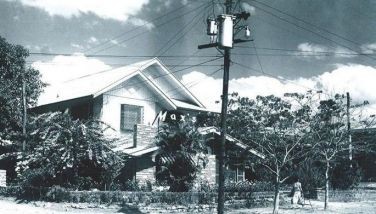Unicorn
There are people who are so gifted that they can easily improve or replace negative or degrading words or phrases to describe a person or a situation into something positive or inspiring. Such that, those who are not blessed with height are now called “vertically challenged.”
There are others too who can easily identify objects or animals and use them as metaphors to describe certain situations. The most popular among laymen is the metaphor “tip of the iceberg.” It means that what one see is just a small part of a larger situation or condition. This comes from the fact that in such small tip that one sees, a larger portion of the iceberg is underneath the water.
Investors and businessmen are using a lot of metaphors too. Among investors, for instance, the terms “bull” and “bear” are commonly used to describe a stock market condition. Whether the value of the investment is appreciating or depreciating. A bull market is one where the market is moving up or on the rise which will normally happen when the economy is performing well and employment levels are high. On the other hand, a bear market is one where the economy is contracting and unemployment is on the rise and most stocks are declining in value.
The terms “bear” and “bull” are believed to be thought up based on these animals’ behavior or action, especially, when they attack opponents. On one hand, a bull will thrust its horns up into the air towards its opponent, while a bear will swipe down. So, when the action or movement is used metaphorically, it is a bull market if it is going up or on an uptrend. It is a bear market when it is going down.
The venture capitalists have their metaphors too. A venture capitalist, by the way, is universally defined as a “private equity investor that provides capital to companies exhibiting high growth potential in exchange for an equity stake.” These are normally promising “startup” companies which would likely deliver massive returns in the future. Such perception or their feel on how the startup companies grow and develop, led to the use of the metaphor “unicorn.”
Coined in 2013 by venture capitalist Aileen Lee, founder of CowboyVC of Palo Alto, California, this metaphor is used in the industry to describe a “privately held startup company with a value of over US$1 billion.” As of June, 2020, there are more than 600 unicorn companies globally. Among the distinguished unicorns are SpaceX, Robinhood, and Instacart. However, to this date, Facebook is the decade’s only super-unicorn, according to Lee. Appropriately, like unicorns, these companies and their successes are so rare.
Notably, most of the unicorns are tech companies or immensely tech-driven. If there is one very popular unicorn that is quite different from these tech companies, which is also a household name, that’s Airbnb, an “online marketplace for lodging, primarily homestays for vacation rentals, and tourism activities.”
Apart from Airbnb, however, the San Francisco (USA) based Pacaso, a proponent of an innovative second home co-ownership, became a unicorn just recently. So impressive that, despite not being a tech company, it attained unicorn status in just five months from its launch. Probably, the timing helped them a lot as it targets people who are looking for a second home for refuge. At the time that most people are trying to retreat to vacation homes, especially in the countryside, amid the ongoing pandemic.
In Pacaso’s business model, it “helps people co-own vacation homes by sharing ownership with others. Pacaso buys the homes, forms a company, and then sells shares in the property, with a minimum investment of one-eighth.” The “percentage size of ownership determines the length of time people get to stay at the property.” Then, it “acts as the agent on behalf of the group and handles maintenance, financing, legalities and more.”
Though quite similar to a “timesharing” model, it is different in the sense that the buyer is an owner of a real estate, not just an owner of the right to use.
This business model is easy to replicate. Not much technology needed, our real estate brokers and property managers can take a look at this model. With the ongoing pandemic, there are a lot of vacation houses now that are available. Some owners may cash in either fully or partially. Obviously, both instances are workable.
With most millennials now opting for “work-from-home” arrangements, they might consider homeownership too. Probably, in us, this could be the right time.
- Latest























